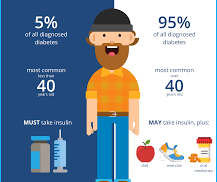Monotherapy in Type II Diabetes: A Focused Approach to Management


What Is the Best Way to Manage Type II Diabetes with a Single Therapy?
Managing Type II diabetes can seem overwhelming. Many patients wonder if one medication alone can effectively control their blood sugar levels without the need for multiple drugs. The answer is yes — in many cases, monotherapy can successfully manage Type II diabetes, especially in the early stages. Monotherapy refers to the use of a single drug to control a medical condition. It is a common initial strategy in diabetes management, especially for patients with mild to moderate hyperglycemia.
- Key Points: Monotherapy is often the first line of treatment after lifestyle changes.
- It helps simplify medication regimens and improve patient adherence.
- It minimizes potential side effects that can come from using multiple medications.
Understanding the Challenges of Monotherapy in Type II Diabetes
Despite its advantages, monotherapy does not come without challenges. Type II diabetes is a progressive disease, meaning that blood sugar levels may worsen over time even with effective treatment. As a result, monotherapy might not be sufficient for all patients long-term.
Challenges include:
- Gradual loss of beta-cell function in the pancreas.
- Increased insulin resistance over time.
- Difficulty maintaining target HbA1c levels with a single agent.
- Potential for treatment failure, requiring escalation to combination therapy.
The Importance of Early Intervention in Monotherapy
Starting treatment early with monotherapy is critical to preventing long-term complications of Type II diabetes. Early blood sugar control helps protect vital organs such as the heart, kidneys, and eyes from damage caused by high glucose levels. Studies have shown that patients who achieve tight glucose control soon after diagnosis have a lower risk of developing serious health issues later in life.
Benefits of early intervention:
- Reduces the risk of cardiovascular disease.
- Helps preserve pancreatic beta-cell function.
- Improves quality of life and energy levels.
- Delays the need for more complex therapy regimens.
By beginning with an effective monotherapy approach like Glucophage (Metformin) and combining it with lifestyle modifications such as diet and exercise, patients can significantly improve their health outcomes and maintain greater independence in their diabetes management.
Criteria for Choosing Monotherapy in Diabetes Management
Choosing the right medication for monotherapy depends on several factors. Physicians assess the patient’s overall health, blood sugar levels, risk of hypoglycemia, weight considerations, and existing comorbidities.
Factors influencing choice:
- Initial HbA1c levels (generally <9% for monotherapy consideration).
- Risk of side effects such as hypoglycemia.
- Weight neutrality or weight loss benefits.
- Cost and accessibility of medications.
Common Medications Used in Monotherapy
Several classes of drugs are commonly used as monotherapy for Type II diabetes. Each has distinct benefits and potential drawbacks, and the choice must be personalized.
Frequently used medications:
- Biguanides (e.g., Metformin).
- DPP-4 inhibitors (e.g., Sitagliptin).
- SGLT2 inhibitors (e.g., Canagliflozin).
- GLP-1 receptor agonists (e.g., Liraglutide).
Each class works differently — some increase insulin secretion, others improve insulin sensitivity or decrease glucose absorption.
Addressing the Problem with Glucophage (Metformin)
Among all monotherapy options, Glucophage (Metformin) is widely considered the gold standard for initial treatment of Type II diabetes. It effectively lowers blood sugar levels by reducing hepatic glucose production and increasing insulin sensitivity in peripheral tissues.
Advantages of Glucophage (Metformin):
- Low risk of causing hypoglycemia.
- Promotes mild weight loss or weight stability.
- Affordable and widely available.
- Strong evidence for reducing diabetes-related complications.
- Long-standing clinical use with an excellent safety profile.
For many patients, starting treatment with Glucophage can delay the progression of diabetes and maintain better control for years.
Living with Type II diabetes requires careful management, and monotherapy offers a simple and effective starting point. Choosing the right medication depends on individual needs, but for many, Glucophage (Metformin) provides an excellent balance of efficacy, safety, and affordability. Early intervention, regular monitoring, and a healthy lifestyle are key to successful long-term outcomes. As the disease progresses, therapy might need to be adjusted, but a strong foundation with the right monotherapy can make all the difference in the patient's journey.
Article Post: Editorial Team of RXShop.md
(Updated at Apr 26 / 2025)